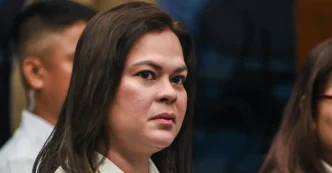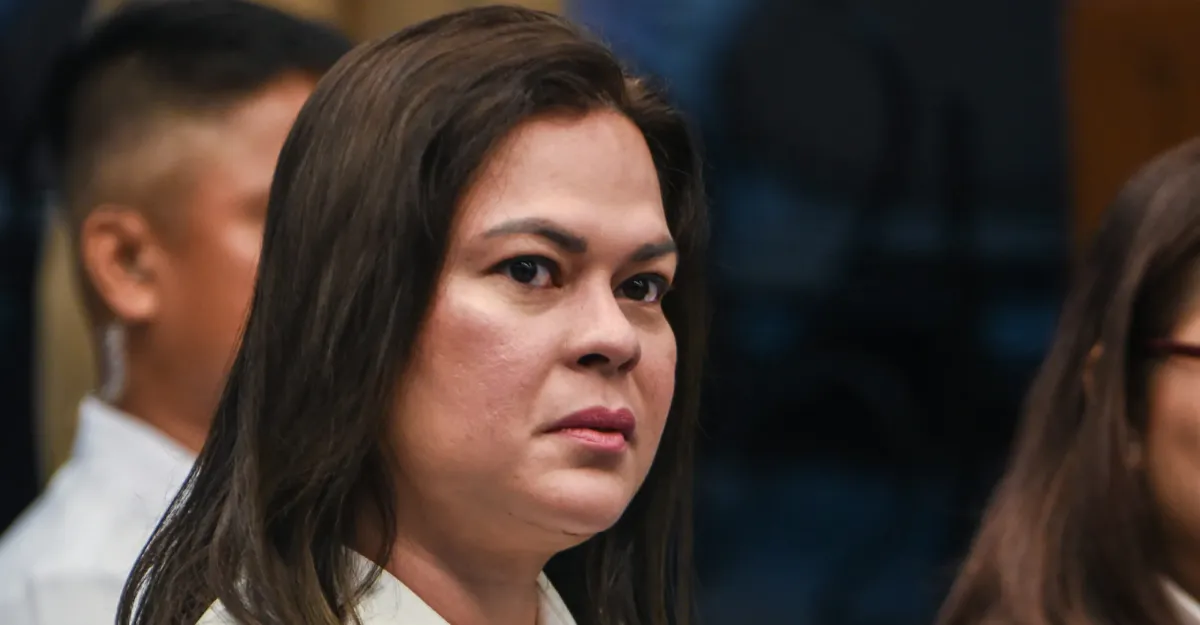In a dramatic turn of events, the Philippine Senate has effectively stalled the impeachment trial of Vice President Sara Duterte, igniting fears of a deepening constitutional crisis. The Senate’s refusal to proceed with the articles of impeachment transmitted by the House of Representatives has led to a procedural deadlock, casting a shadow over the country’s democratic institutions as public frustration mounts.
Procedural Chaos and Legislative Standoff
The impeachment process, intended to hold high-ranking officials accountable under the Philippine Constitution, has descended into what many legal experts describe as a procedural “ping-pong” between the Senate and the House. The House transmitted the articles of impeachment against Duterte, accusing her of various breaches of public trust, but the Senate, under the leadership of President Francis Escudero, has delayed action. Critics argue that the Senate’s tactics—first delaying the trial with logistical excuses and later remanding the complaint back to the House—violate both constitutional mandates and legislative precedent.
Escudero has faced intense scrutiny for his handling of the process. When pressed by legal scholars on his interpretation of the constitutional requirement to proceed “forthwith,” he deflected responsibility, citing logistical challenges before passing the issue to the Supreme Court. “We’re not equal on the matters of impeachment” Escudero declared during a heated exchange with House representatives. “The House has no power to refuse the impeachment court’s orders. This was not like in a bicameral conference that we need to agree” he added, drawing sharp criticism for what many see as self-serving rhetoric.
This standoff has not only paralyzed the impeachment process but also raised broader questions about the balance of power between the two chambers of Congress. Legal analysts warn that the Senate’s actions risk undermining the constitutional framework designed to ensure checks and balances, potentially setting a dangerous precedent for future accountability measures.
A Legacy of Impunity?
The current crisis cannot be divorced from the broader political context in the Philippines, particularly the enduring influence of the Duterte family. Sara Duterte, daughter of former President Rodrigo Duterte, has been a polarizing figure since taking office as Vice President. Her tenure has been marked by controversial statements, including a reported threat against the sitting President, which many cite as evidence of her disregard for democratic norms. Yet, the Senate’s apparent reluctance to convene a trial—despite mounting public and legal pressure—suggests a deeper institutional hesitance to confront the Dutertes.
During Rodrigo Duterte’s presidency from 2016 to 2022, the Senate often acted as a rubber stamp for his policies, even as critics accused him of authoritarian overreach. High-profile cases, such as the prolonged detention of former Senator Leila de Lima on what many international observers called politically motivated charges, underscored the Senate’s failure to protect its own members from executive overreach. Now, in 2025, the Senate’s inaction on Sara Duterte’s impeachment trial has revived accusations of cowardice and complicity.
“It’s remarkable how, three years after Rodrigo Duterte’s departure, we are still grappling with a Senate too afraid to hold his family accountable” said Maria Lopez, a constitutional law professor at the University of the Philippines. “This isn’t just about Sara Duterte; it’s about whether our institutions can function independently of political dynasties.”
Public Backlash and Escudero’s Fall from Grace
Senate President Francis Escudero has borne the brunt of public anger over the impeachment debacle. In the weeks following the Senate’s decision to stall the trial, Escudero has been widely criticized as one of the most mocked politicians in recent memory. Social media platforms, including X, have been flooded with memes and scathing commentary targeting his perceived sophistry and political opportunism. His past record of shifting political allegiances and controversial public statements has only fueled the backlash.
Public sentiment, as reflected in X posts and local media coverage, paints a picture of growing disillusionment with the Senate’s leadership. Many Filipinos view Escudero’s legal arguments as transparent attempts to protect political allies rather than uphold democratic principles. “His excuses are laughable” wrote one user on X. “If the Senate won’t act, who will?”
Escudero’s insistence on the Senate’s primacy in impeachment proceedings has further alienated the House, deepening the rift between the two chambers. This public and political fallout has left Escudero isolated, with some analysts predicting long-term damage to his political career unless he can navigate a path out of the crisis.
A Democracy at the Crossroads
The impeachment crisis is emblematic of broader challenges facing Philippine democracy. The procedural deadlock reflects a profound breakdown in the mechanisms designed to ensure accountability at the highest levels of government. As historian Barbara Tuchman once warned, when the gap between the ideal and the real becomes too wide, systems break down. In the Philippines, that gap appears to be widening with each passing day.
Beyond the domestic sphere, the crisis unfolds against a backdrop of global uncertainty. The 21st century has been defined by successive shocks—from the 9/11 attacks to the Arab Spring, and more recently, conflicts in Ukraine and the Middle East. For Filipinos, the domestic turmoil mirrors a world in disarray, where democratic norms are increasingly under threat. The Philippine Senate’s failure to act decisively on the impeachment trial risks reinforcing a narrative of institutional fragility at a time when strong governance is most needed.
Legal experts caution that if the new Congress, set to convene in the coming months, does not address these systemic issues, public trust in democratic institutions could erode further. “We are teetering on the edge of a constitutional crisis” warned Antonio Reyes, a former Supreme Court justice. “Without a clear resolution, the very aspiration to a constitutional democracy may be called into question.”
Global Parallels and Historical Lessons
The Philippines is not alone in grappling with democratic backsliding. Across the globe, institutions face similar tests of resilience. In the Middle East, recent escalations between regional powers, including a reported strike in Tehran on June 15, 2025, underscore the fragility of international order. Closer to home, Southeast Asian nations like Myanmar and Thailand have faced their own struggles with political accountability and military influence over civilian governance.
Reflecting on historical parallels, Tuchman’s observations of 14th-century Europe—marked by plagues, wars, and societal collapse—offer a sobering reminder that humanity has endured periods of profound crisis before. “If our last decade or two of collapsing assumptions has been a period of unusual discomfort, it is reassuring to know that the human species has lived through worse” she wrote. For the Philippines, this historical perspective may provide some solace, but it does little to resolve the immediate challenges facing its democracy.
Looking Ahead: A Call for Reform
As the impeachment crisis unfolds, the Philippine public watches with bated breath, awaiting a resolution that may define the future of its democracy. Will the Senate reverse course and convene the trial, or will the deadlock persist, further eroding trust in governance? The role of the Supreme Court, now tasked with weighing in on the constitutional dispute, could prove pivotal in breaking the impasse.
Meanwhile, calls for reform grow louder. Civil society groups and legal advocates are pressing for clearer guidelines on impeachment proceedings to prevent future crises. For many Filipinos, the stakes could not be higher. The outcome of this saga will likely shape not only the political fortunes of Sara Duterte and Francis Escudero but also the trajectory of a nation striving to uphold the ideals of constitutional democracy in an uncertain world.
















